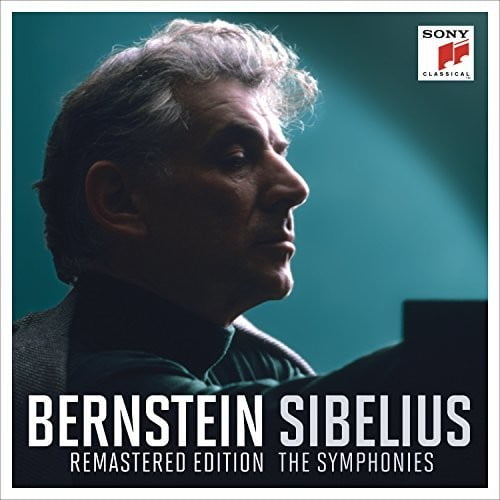

The simple microphone techniques used project the orchestra with honesty and impact. They have the advantage of dark, articulate lower strings, delightfully grainy bassoons, trombones as black as a pine forest and brilliant, blazing horns. The Pittsburgh Orchestra may lack velvety plushness – but that is no disadvantage in a Sibelian soundscape. The recorded balance is ideal, the solo violin superbly `present’ but not unnaturally forward.

The excellent performance of the Violin Concerto is a treasure! The soloist, Julian Rachlin, plays with breadth a fluent, rhapsodic freedom and a wonderful vitality and bite. There is a cogency about this cycle, a seamless consistency widely varied scenes viewed from the same vantage-point. It also seems to hold at its core a stillness a still, silent centre around which musical planets move and coalesce.

Maazel’s objective and patient approach is ideally suited to these enigmatic and inscrutable works. Bernstein was a staunch advocate for the composer as well, and unlike his late Sibelius on Deutsche Grammophon, nothing is mannered or over-personalized. There are moments when the broad land, sea and skyscapes open out into music that seems to belong to the transcendent vastnesses of deep-space (especially in the 4th and 7th Symphony). Better yet, it's coupled with Leonard Bernstein's amazing New York Fifth. Overall rating: 5 stars (applies to the Sibelius concerto, the rest of the album I cannot be bothered with) A nice alternative recording which I also really like, with another young rising star on the violin, is the version with Lisa Batiashvili (We are living in great times with so many fantastic violin players around). These landscapes are unpopulated, often inhospitable, bleak and cold. Sibelius’s symphonies aren’t `theological’ (like Bruckner’s and, in a different way Mahler’s too). Maazel has a direct, objective manner in Sibelius and the natural, open sounding recording of the Pittsburgh Orchestra is suited to the music. Concerto in D Minor for Violin and Orchestra, Op. Allegro molto – Allegro assai – Doppio piu lentoĠ1. 105: Allegro molto moderato – Allegro moderato – Presto – Adagio – Largamentemolto – AffettuosoĠ1. Bernstein is particularly adept at getting the finale to sound grand without pomposity too often its principal thematic material seems to come back one time too many. Andante ma non troppo – Allegro energicoĠ2. It’s part of the Sibelius Two troika that also includes Barbirolli (Chesky) and Szell (Philips).


 0 kommentar(er)
0 kommentar(er)
